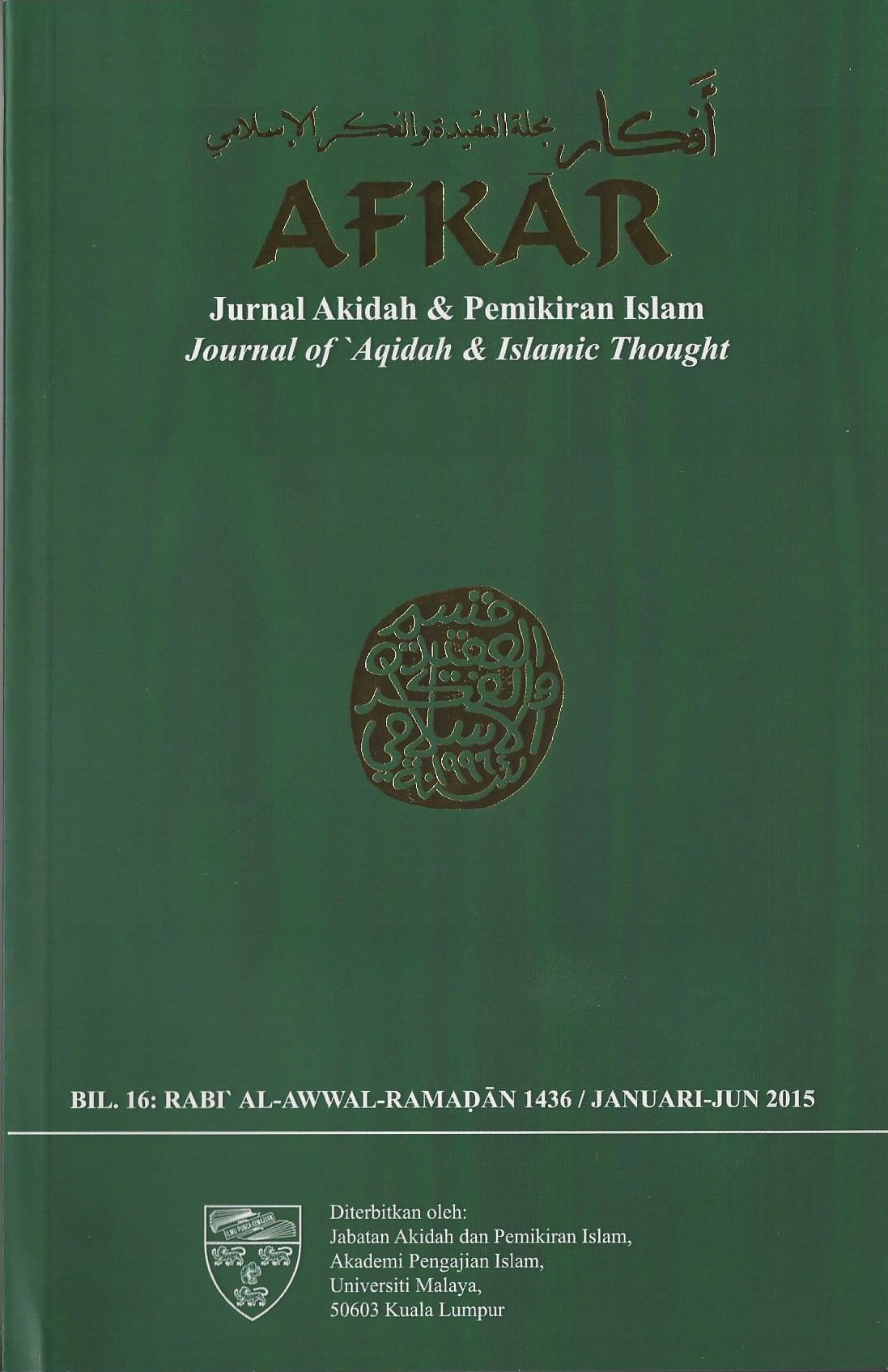Pemerkasaan Keharmonian Masyarakat Beragama: Rujukan Pendekatan al-Biruni Berdasarkan Karyanya Kitab Al-Hind
DOI:
https://doi.org/10.22452/afkar.vol16no1.1Abstract
The openness of mass media and electronic media gives space to some irresponsible people for being ‘sarcastic’ to other religion, take for examples, through a film screening such as the film of Innocent of Muslims, expressions of dissatisfaction due to road filled with waste of coconuts during Thaipusam festival and condemning Sikh for wearing a turban instead of wearing a helmet compared to other faiths. These have sued the interactions among the people of the world, threaten the harmonious life and destroying relationship among religious communities and also trigger prejudice. The relationship between different religion that was tinged with this spirit of hostility would be a threat to the construction of civilization. Thus, the image of every religion soon should be restored fairly and effectively through the science of Comparative Religion approaches, which is believed as a platform to highlight the reality of every religious affiliations and disseminiting to the world community. Hence, this paper discusses about al-Biruni as one of the Muslim scholars and his approaches through his treatise named Kitab al-Hind in the context of comparative religion, in order to develop a comprehensive understanding in the interaction between religious communities about their religion through the holy sources which they believed in. This debate will provide detail information on the approaches in nurturing religious harmony among people within various background of religions and being able to catalyze the formation of a harmonious society.









